Blog
BLOG
AI is Smart and Creative But
Don’t Trust It Blindly
Generative AI excels at speed, creativity, and content generation, but its outputs can be unreliable due to biased or outdated training data. It may produce convincing yet incorrect information. As it predicts patterns rather than verifying facts, users should treat AI as a support tool, not a final authority, and always verify results using trusted, authoritative sources.

What is GPT?
and how many of them?
GPT (Generative Pre-trained Transformer) is an advanced AI model that generates human-like text. Beyond ChatGPT, domain-specific GPT models are tailored for industries like law, finance, education, and healthcare. Fine-tuned on specialised datasets, these tools enhance performance in tasks like legal research, financial analysis, and drug discovery. Their adaptability makes GPT a transformative solution for diverse applications, driving innovation across fields.
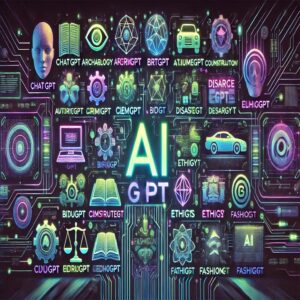
Impacts of AI on Higher Education
Academic Integrity
AI in education offers efficiency but risks academic integrity. Over-reliance on AI tools for assignments can lead to plagiarism and superficial learning, inflating grades. Disparities in AI access create an uneven playing field for students. To address these challenges, teachers should use AI detection tools, review writing styles, incorporate in-person assessments, and revise assessment designs to promote fairness and critical thinking.
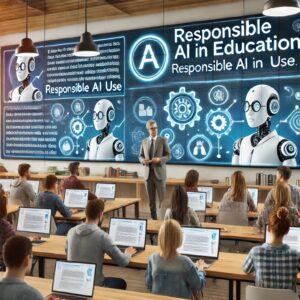
Is United States AI
focused on desktop computing and China on manufacturing?
The U.S. excels in AI for software, cloud computing, and autonomous vehicles, led by OpenAI, Google, and Microsoft. China focuses on AI-driven manufacturing, robotics, and smart cities, with leaders like Huawei, Baidu, and Alibaba. Both nations leverage AI in healthcare, finance, and cybersecurity, shaping global innovation and competition in AI technology and applications.
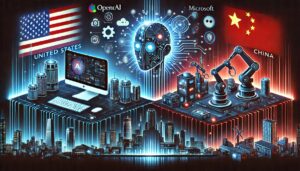
AI revolutionizing supply chains:
Efficiency, transparency, sustainability, and innovation
AI is revolutionizing the supply chain industry by enhancing efficiency, accuracy, and sustainability. From predictive analytics for demand forecasting to warehouse automation and real-time tracking, AI-driven solutions streamline operations. With technologies like autonomous vehicles and smart inventory systems, businesses achieve cost savings, reduce environmental impact, and improve customer satisfaction in today’s competitive, fast-paced global market.
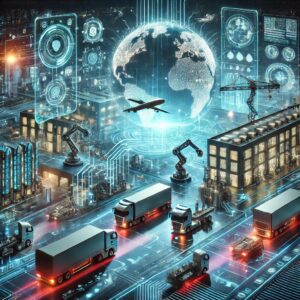
AI-embedded dash camera
boost security, efficiency, and savings
AI-embedded dash cams combine real-time video analysis with proactive safety alerts and fleet management tools. With features like Parking Mode AI Monitoring, lane departure alerts, and driver behaviour tracking, they enhance vehicle security, road safety, and operational efficiency. Future advancements like 5G and personalised AI will revolutionize their role in autonomous and semi-autonomous vehicles.
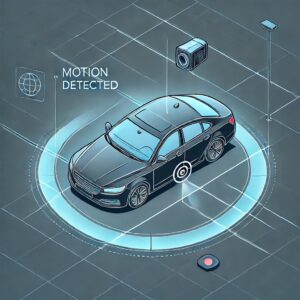
Leadership Challenges
Balancing Technology and Human Talent in Modern Management
AI is transforming management by automating repetitive tasks, pushing leaders to focus on human strengths like creativity and emotional intelligence. Managers must up-skill teams for strategic roles, balancing AI efficiency with human ingenuity. By fostering innovation, addressing ethical concerns, and emphasising employees' unique contributions, leaders can create adaptive workplaces that harmonise technology and talent for success.
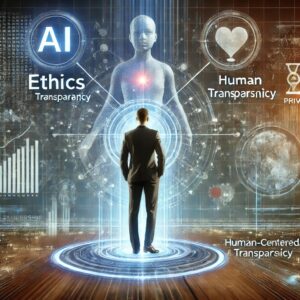
Bias and Fairness
Challenges in AI Systems
AI is transforming industries but poses risks of bias and inequality. Trained on flawed data, AI can perpetuate discrimination in areas like hiring, policing, and lending. Ensuring fairness requires diverse datasets, bias mitigation, transparency, and accountability. By addressing these challenges, we can harness AI's potential while promoting equitable outcomes across all sectors.
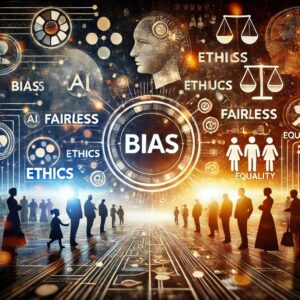
Artificial Intelligence
History, Current Applications, and Future Prospects
Artificial Intelligence (AI) simulates human intelligence through machines, encompassing disciplines like machine learning, robotics, and NLP. It performs tasks such as problem-solving and decision-making. Originating in the mid-20th century, AI has advanced significantly with applications in voice assistants, self-driving cars, and healthcare. Despite its benefits, AI poses ethical concerns, requiring responsible innovation and regulation.
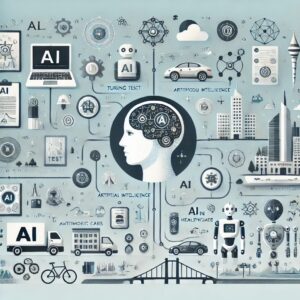
Big Data Collection
Benefits, Risks, and Ethical Concerns
Big Data refers to vast, complex datasets generated from daily activities like social media use, online shopping, IoT devices, and healthcare systems. Tech giants, e-commerce platforms, and governments collect this data to drive innovation and enhance decision-making. However, its widespread use raises concerns about privacy and ethics, highlighting the need for robust governance and transparency.
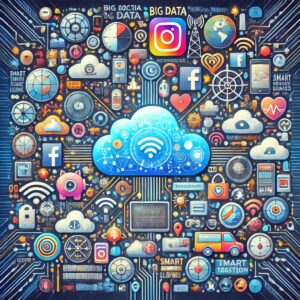
About
About
Thomson, a Chartered Engineer (CEng) and a Justice of the Peace (JP), excels in computing, business systems, and public service, with global expertise and active community engagement
Contact
Contact Us
Thank you for visiting my blog and taking the time to explore my content. Whether you’re here for personal insights, or professional collaboration, I’m glad to connect with you
Get in touch
Thank you for taking the time to read - your interest is truly appreciated!.